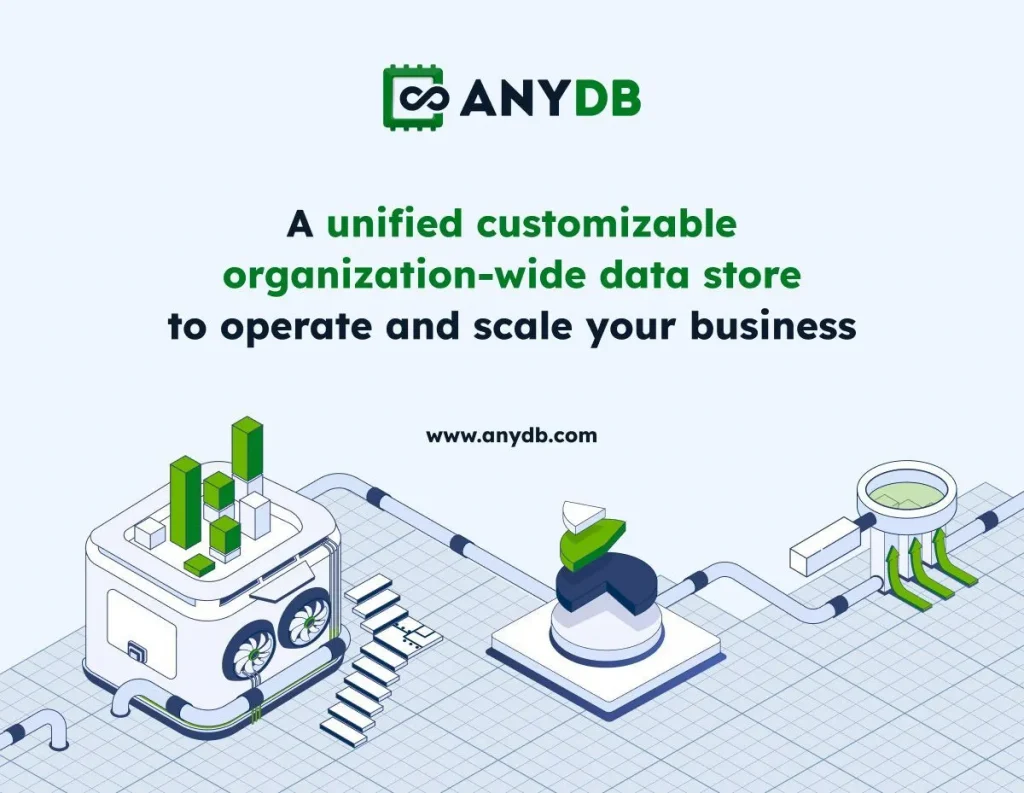Airtable enables teams to manage data and helps them with their unique workflows. At first glance, Airtable looks a lot like a spreadsheet but is much more powerful. Its building blocks allow team members to model the things they work on, define relationships between things, and create views tailored to the way they work. While it’s versatile, is Airtable the best tool for all companies? Different teams have different needs, and exploring airtable alternatives can help them select the perfect platform to make their work efficient.
Let’s focus on you. Which tool fits your team’s data requirements?
In this article, we’ll take a look at the alternatives to Airtable and see how they stack up.
Why Choose an Airtable Alternative?
Airtable is a popular organization platform with a design that mimics the familiar Microsoft Excel. In addition, the software offers business features such as real-time data access and management, collaboration features, and workflow management.
Despite its many benefits, users have started to look for Airtable alternatives. Why? Some of the downsides of this system are as follows:
- Complexity: Despite Airtable’s power, it’s not as powerful as dedicated database management systems for handling more complex data relationships.
- Pricing: It can get pricey as your usage and storage increase, especially if you need advanced features. Free plans have limits, and premium plans cost considerably more.
- Scaling: Airtable might not be the best choice for companies with larger data sets or more complex queries due to performance issues.
- Limited reporting and analytics: Although it has basic reporting and visualization features, Airtable lacks advanced analytics features many businesses may need.
If your business is growing, it is likely that you’ll soon have outgrown the features of this software.

The 5 Best Airtable Alternatives for Beyond-the-Basics Data Organization
We’ve analyzed the software landscape to pinpoint strong alternatives that address the limitations outlined above. Let’s check the options that can fuel your team and company forward. Starting with number 5:
Alternative #5: Notion
Notion is a workspace that combines notes, tasks, databases, and calendars into a single platform.
It’s perfect for teams looking for an easy-to-use, collaborative app that can meet a variety of needs.
| Notion | |
| Key Features | Similarities to Airtable |
| – Integrated note-taking, task management, and database functionality. – Highly customizable templates and layouts. – Real-time collaboration and sharing. – Support for embedding many media and file types. – Extensive integration capabilities with third-party apps. | – Both platforms offer flexible data management and organization through customizable views and templates. – Real-time collaboration is supported, allowing teams to work together. – Users can embed different media types and integrate with other tools for enhanced functionality. |
What Sets it Apart
While Airtable focuses on structured data and relational databases, Notion excels at managing unstructured information. Its interface is more focused on a wiki-style layout, which can be beneficial for teams looking to make knowledge and documentation central.
Alternative #4: Rows
Rows is a platform that blends traditional spreadsheets with built-in automation, integrations, and real-time collaboration. It’s designed for teams that want to manage data and workflows in a simpler, no-code interface.
| Rows | |
| Key Features | Similarities to Airtable |
| – Spreadsheet-style interface that supports formulas and common functions. – Native integrations with tools like Google Analytics, Stripe, and HubSpot. – Built-in automation and scripting capabilities. – Real-time collaboration with access control. – Customizable dashboards and charts for data visualization. | – Both platforms combine spreadsheet functionality with database capabilities. – Real-time collaboration enables teams to work together on live data. – External tools can be integrated to streamline workflows even further. |
What Sets it Apart
While Airtable emphasizes its database-like structure and customizable views (like Kanban or calendar), Rows leans into its powerful spreadsheet engine and automation features.
It’s especially strong for teams that are comfortable with spreadsheets but want to enhance them—without jumping into full-scale software development.
Alternative #3: Smartsheet
Smartsheet is a platform designed for work management and automation. It is widely used for project management, collaboration, and workflow automation.
Its spreadsheet-like interface makes it familiar and easy to adopt for users who are comfortable with more traditional tools like Excel.
| Smartsheet | |
| Key Features | Similarities to Airtable |
| – Project management with Gantt charts, calendar, and card view. – Automated workflows with notifications and request approval. – Resource management capabilities. – Real-time activity logs and detailed reporting. – Integration with various business tools and applications. | – Both platforms have spreadsheet-like interfaces that make data entry and management intuitive. – They offer project management views such as Gantt charts and calendar integrations. – Both support workflow automation, increasing the efficiency of project execution. |
What Sets it Apart
Smartsheet focuses on enterprise-level project and resource management, making it suitable for larger organizations with more complex project needs.
While Airtable emphasizes flexible data organization and relational linking, Smartsheet focuses on project tracking and work automation.
Smartsheet’s interface and feature set are more suited to traditional project management methodologies compared to Airtable’s versatile data management.
Alternative #2: Baserow
Baserow is an open-source, no-code database platform designed for creating and managing databases with ease.
It offers a flexible and user-friendly interface, making it ideal for teams and individuals looking to organize, track, and collaborate on data without needing technical expertise.
| Baserow | |
| Key Features | Similarities to Airtable |
| – Customizable database creation with a spreadsheet-like interface. – Support for many views, including grid, kanban, gallery, and calendar views. – Real-time collaboration for teams to work together seamlessly. – API access for integration with other tools and custom workflows. – Self-hosted option for enhanced privacy and control over data. | – Both platforms provide a spreadsheet-like interface combined with database functionality. – Both support collaboration features. |
What Sets it Apart
While Airtable focuses on a cloud-based, all-in-one solution, Baserow provides more flexibility for developers and organizations that need control over their data and infrastructure. Its API-first approach makes it extensible, enabling deeper integration with other tools and systems compared to Airtable’s more closed ecosystem.
While each of these alternatives brings something special to the table, there’s one more option worth peeking at before you make your decision. Think of it as the cherry on top of our alternatives sundae.
Alternative #1: AnyDB and How it Combines Data Management and Workflow Automation
AnyDB is a versatile platform that combines data, automation, and workflow management into a single, unified solution.
It is designed to help growing businesses streamline their operations, eliminate data silos, and improve decision-making.
| AnyDB | |
| Key Features | Similarities to Airtable |
| – Built-in automation for seamless workflow management across departments. – No-code customization, and it’s just like Excel. If you know how to use it, you’ll feel right at home with AnyDB. – Scalable pricing with no vendor lock-in, ensuring flexibility as businesses grow. – Centralized data management for sales pipelines, HR records, and customer data. – Role-based permissions for secure data access. – Cell-level precision. – Zero-trust encryption and granular security features to protect sensitive business data. | – Both platforms offer no-code customization. – They provide centralized data management and workflow automation capabilities. |
What Sets it Apart
AnyDB is designed to address the challenges of scattered data and rigid tools, making it a more flexible and cost-effective solution for growing businesses.
Unlike Airtable, AnyDB is a tool for leaner and more confident decision-making, with a strong emphasis on automation and database integration across departments.
Moreover, it provides access to a wide range of pre-built templates to streamline database automation, saving time on setup and customization.
Why Choose AnyDB?
AnyDB is the ideal solution for teams looking to simplify data management. That means you can move faster as you cut time wasted on chasing data or learning complex tools. All while you automate processes and access the information you need instantly.

Choosing What’s Best for Your Needs
Exploring Airtable alternatives can help you find a custom solution aligned with your team’s specific needs.
When choosing an alternative, consider your workflow demands and the complexity of your projects. By weighing these factors, you can make an informed decision about the best tool for your team.
It’s time to stop using outdated tools! Sign up for early access to AnyDB and be among the first 100 users with a full year of FREE Business Plan.




